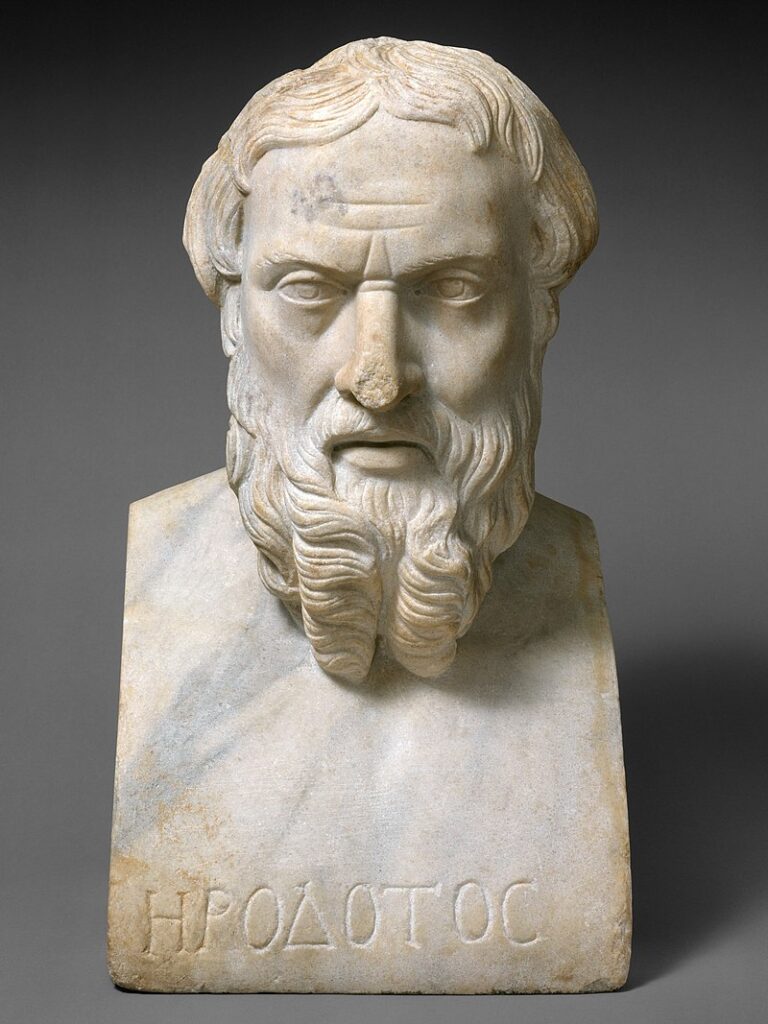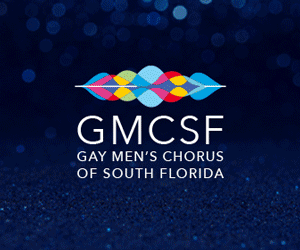
Bear Tracks: Taking Inventory
As I write today I am basking in the limelight of being the cover bear du jour. I thank Bear World Magazine for recognizing my contributions to the bear community as their Bear Icon honoree this year. Thank you! I am more grateful that this recognition gives me the opportunity to help spread the word of my work–bear history is told through the voices of those who have created, shaped, led, or otherwise participated in our community. For readers who remember Xena: Princess Warrior, I see myself as an amanuensis (like Gabrielle) but recording the adventures of bear history rather than Xena’s exploits. Fame is fleeting. Fame has never paid my rent or put food on my table.
Herodotus, whom Cicero called “the father of history,” was interested in the past. He tried to explain what had happened, always striving to be without bias. He was the first writer to perform the systematic investigation of historical events. He included cultural, ethnographic, geographical and historiographical background that creates meaning out of bare facts (who, what, when, and where), explaining the why. Originally criticized by the Roman Thucydides for “reporting legends and making up fanciful stories” for entertainment purposes, modern archaeologists have documented the facts of Herodotus’ alleged “made-up stories.” What I record and report is based on first-person participants whenever possible and on trustworthy documentation. Wherever possible I run my “Bear Tracks” columns past the individuals I am writing about to verify facts and the tone of my presentation. I do not include footnotes because that is inappropriate for a general readership. However, I have boxes full of the documents I draw much of my information from.
I employ Herodotus’ approach, foregrounding ethnographic, cultural, and geographical perspectives. I rely heavily on my sources—called “key informants” — to be reliable truthtellers. This is essential when there are no other witnesses to corroborate assertions. I need to be careful in assessing the informant’s truthfulness. Sometimes I only have my intuition to go on. A case in point: Richard Bulger had made up a story of how he was inspired to found BEAR magazine, presenting it as the truth. For years rumors circulated that his story was totally made up. When I interviewed a key informant about this, someone I had no reason not to trust, he perpetuated the myth (a polite way of saying he lied to me) and I published his account as fact. Bulger’s story has since been disproved as myth. I became deeply disappointed in this informant. I still have no idea why he lied to me. And I will never trust his word again.

As I have often stated I strive both to be as factually accurate as I can be and to be as transparent as possible about my own subjective “take.” Whenever I learn I am in error, I correct the public record. I am grateful to be corrected and do not take it as some kind of personal attack.
Understandably, individuals who find themselves and their contributions left out or forgotten often feel angry. I am always grateful when such people reach out to me to correct the record. My Bear Icon cover story has proven a boon to helping me make corrections to our history. I know the sting of this from personal experience. When Cornell announced in 2005 that it had acquired my personal papers including the entire original Bear History Project archives, many people assumed I had died. (Archives typically acquire papers upon the death of that person.) Sadly, no fellow gay historians bothered to verify the facts before announcing that I was dead. My work and my name were quicky forgotten. Again and again I encountered bears telling me their version of the history of bears, clearly making it up out of whole cloth, unaware that our history had been documented and published, and having no idea who they were talking to. More than once I have been informed that I am not a bear, by individuals who saw themselves in a better position to make such determinations. (Apparently, there is a secret cabal of self-appointed bear arbiters who make these determinations. I believe they wrote The Protocols of the Elders of Beardom where they spell this out.)
When John Burrows, the beloved founder of Provincetown Bear Week, passed away last year, I was surprised to read that John was credited for singlehandedly founding the Provincetown Bears (which Ptown Bear Week grew out of), omitting fellow cofounders Dave Thompson and myself from the record. I clearly remember the evening at John’s place in Ptown when the three of us resolved to start a group to promote bear visibility among the throngs of summer gay tourists. Being the sole survivor of that threesome, I was able to contact the newspapers and have them correct the record.
The mission of the recently incorporated nonprofit Bear History Project International, as well as my Bear Book III (research is still ongoing), is a “commitment to document Beardom in all its global presence and diversity.” History is descriptive, not prescriptive. We are also striving to recuperate and uncover more of our early bear history even as those community elders are passing away. We seek to include all the diversities within our community—ethnic and racial and other typically underrepresented or invisible groups, the innumerable variations of bear identities now proliferating around the world (and typically ignored by us in the “first-world” Anglo-centric US), and those embracing the still expanding sex-and-gender fluidity identities as bears, historically understood to be gay, white, cisgender men.
I am grateful to hear from readers pointing out some of my (inadvertent) omissions. Dutch bear community elder Jacques Zonne informed me he was International Mr. Grizzly Bear at IBR in 1996. Jack Fritscher, a meticulous fact-checker, often corrects my errors and provides me with background information I am not otherwise privy to. I am particularly heartened to hear from John Caldera, who was understandably distressed to see that he had been completely left out of my accounts of bear history. He has played an important role in the San Francisco bear community from its start in the 1980s as an out and proud bear of color. He has held numerous titles, has been very active in promoting the bear community, and is well known in San Francisco for his many years of service on the San Francisco Veterans Affairs Commission. I knew John in the 1980s and early 1990s, but lost track of him when I moved to Boston in 1993. My unintentional oversight when first recording San Francisco bear history was no doubt due, in part, to my own inattentiveness to bears of color within our community. I remember John as a bear, but not specifically as a bear of color. I am no doubt guilty of white-privilege blindness, a lesson all of us in the US are now being schooled in. I am happy I have reconnected with John. I look forward to conducting an oral history interview with him. I will feature his contributions in a future “Bear Tracks” column. Speaking with John recently has made me aware that Ben and Bill and their Bear Expos (which preceded IBR) as well as the legendary Lurch, all key elements of early San Francisco bear history, have also been forgotten.

I am also heartened that news of my Bear Icon honor is reaching many of those in bear communities outside the Anglo-American tribes. As for the Anglo-American tribes I have, to date, interviewed one Londoner. I have known several Aussie bears and am still hoping they will allow me to interview them or write an essay for Bear Book III. Currently I have no contacts in Canada, New Zealand, Scotland, or Ireland. Because of my personal ties I have a particular affection for bears in Germany. I speak fluent German and can interview individuals in German. I have a solid grasp of German cultural values and attitudes and can bridge cultural differences. I follow numerous German bear clubs and events on Facebook. To date, not a single person has responded to my request to connect. In fact, the only response I have gotten from anyone in Germany was from an archivist at the Schwules Museum in Berlin, inviting me to visit their archives in person.
I have recently heard from others, including Kyle Maldonado, Diniz Sanchez, and Marco ByM Veloso. All of them have been waiting to hear back from me while I have been waiting to hear back from them. We have all been wondering why the other dropped the ball. I am keen for their history and for the opportunity to grow my network of “key informants” in the far-flung corners of the world.
Recent research has revealed to me that the DCMDVA (Washington, D.C., Maryland, and Virginia) area bears played an important, and unrecognized, role in early US bear history. I have also been reminded that TBRU in Dallas has continued to play an important (and unreported) role. In 2002 I was their guest speaker (the first of the only two times I’ve been invited to speak about bear history). After my presentation I went back to my hotel room to find a message left for me. My mother had just died. At that point I withdrew from the TBRU activities and spent the rest of the weekend mourning in private. (TBRU kindly made a donation to the Alzheimer’s’ Foundation.)
The original Bear History Project grew out of a private vision and until 2005 it was completely my work alone. I stopped the project in 2005. It had grown so vast so quickly that one single person could no longer do it alone. The dramatic shift from print to electronic media made it impossible for me to continue documenting. (This is a problem archives to this day have not completely resolved.) And, I had been paying for all of this work out of my own pocket. At that point my Bear History Project work had put me into $30,000 of personal debt, which I was eventually forced to discharge through bankruptcy court. When I revived the BHP in 2019 it was clear it needed to be formally organized and consist of a group of individuals collectively committed to the project for it to succeed. We are currently a board of five and additional five active volunteers. No one gets paid for their work. As a formal organization we can now apply for grants. This work is far more expensive than what we can individually pay for out of our own pockets. Formal organization assures this work will continue long after I and the rest of us are long gone. If anyone has a personal (or other) issue working with me, there are now nine other people they can choose from to approach to work with.

Politics are everywhere. When I once told my career change coach I wanted to work in an environment free of personal politics, she just laughed and laughed. One day I hope to write about politics in Archive Land. I was caught unawares of politics in Wikipedia Land. To this day there is no Wikipedia page for me. Several years ago Jim Steakley, a fellow German gay historian friend, created a Wikipedia page for me. He writes Wikipedia pages for many scholars of German history and literature and is well-versed in Wikipedia Land. Within minutes of publishing my page someone stripped it of everything except a few basic facts in the public record—date and place of birth and the like. Jim started reposting and found himself immediately drawn into a Wikipedia war. He said there are plenty of Wikipedia trolls out there, who are highly skilled in winning these battles. It was never clear if this was someone bearing me personal animosity or a random Wikipedia troll who thrives on being an asshole.
When I was an undergraduate in the early 1970s I had a vague vision of what awaited me in my own life. I saw myself as a professor of German and Russian at Middlebury College in Vermont, happily settled down with a furry blond muscle bear (neither same-sex marriage nor gay bears existed at the time). He and I would spend our weekends cavorting in Manhattan leather bars and summering in fashionable European hot spots. As the cliché goes, life is what happens while you’re making other plans.
On the first day of every college course I have taught I begin with the syllabus which begins with a quote from Herbert Spencer. He was a nineteenth-century British philosopher, anthropologist, and sociologist, famous for his doctrine of social Darwinism (“survival of the fittest”). His doctrine is now discredited for justifying that wealth and power remaining in the hands of the rich and powerful. He is still remembered for this quote: “There is a principle which is a bar against all information, which is proof against all arguments and which cannot fail to keep a man in everlasting ignorance—that principle is contempt prior to investigation.”
Help Les K Wright in his quest to document bear history by joining the Bear History Project International where you and a group of like-minded individuals can exchange ideas and help to preserve bear history and culture.









